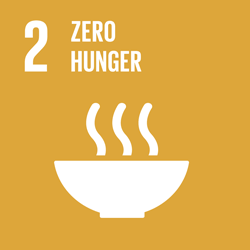
Thank you so much for your generous donation!
You're creating real change — your support truly matters!
Stay connected with the project you backed and with Nature Invest -- be part of the movement for a better planet.



Created by, Fabiane Sebaio
Organization Name: Consórcio Cerrado das Águas
Strategic Partner: Project Not Assign
The Cerrado Waters Consortium (CCA) is a collaborative platform that includes various sectors, involving companies, government and civil society. Our aim is to join forces for environmental preservation and conservation in order to combat climate change.
This project is rooted in the personal story of the daughters of Mr. Luís, a family farmer from Paraná who moved to Minas Gerais when he was young, Natália and Renata Pellegrini, who as teenagers left Serra do Salitre/MG, the city where they were born, to study in the capital of Minas Gerais. During the pandemic, they returned to the origins of their family, made up of rural family producers, reconnecting with the lands where they spent their childhood and adolescence. In this return, they experienced their family's agricultural traditions and decided to take on some of the responsibilities, founding the "Café de Casa" brand. Aware of the growing challenges of climate change in the region and recognizing the impacts of these changes on the farm, the sisters chose to make a transition to agriculture that would make them more resilient and in line with their personal values of protecting the environment. In the process, Natália and Renata learned about and joined the Conscious Producer Investment Program, run by the Cerrado das Águas Consortium, which operates on rural properties in the Cerrado Mineiro region. Through this partnership, they began to develop Agroforestry Systems (SAFs), a sustainable approach that integrates agricultural crops with native trees, promoting biodiversity, soil conservation and carbon capture. This project not only represents a transition to more sustainable agricultural practices, but also provides a personal journey and a connection with family roots and the region's natural environment. As well as being committed to promoting the quality of their coffee, Natália and Renata want to have a diversified harvest of products to eat at home and supply the school in the community near their property. They also understand that preserving the Cerrado must go hand in hand with production if we are to build an agricultural future that is more resilient to climate change.
Activity 1: Preparing the Land and Choosing Agroforestry Species
In the first activity, we will focus on preparing the land and choosing agroforestry species for 1.5 hectares of SAF. Preparing the soil is a crucial step, so it's important to carry out a soil analysis to understand its specific characteristics and needs. Based on this result, we will select the species of trees and intercrops that best suit the soil conditions and the objective of the agroforestry project. This initial stage is fundamental to the success of the venture, as it will directly influence the growth and productivity of the plants in the agroforestry system, so it must be carried out with care and attention.
Activity 2: Implementation and Management of Agroforestry Coffee
In the second activity, the emphasis is on the implementation and management of agroforestry coffee. In this phase, we will start planting the coffee seedlings, along with the previously selected intercropped species. The integration of coffee crops with other species is essential to promote the diversity and resilience of the agroforestry system. In addition, sustainable coffee and soil management practices will be implemented. This involves using ecological methods to maintain the health of the soil and plants, such as using organic fertilizers and minimizing the use of chemical products. To ensure the success of this stage, constant monitoring of crop development and the implementation of appropriate management strategies will be crucial. This allows practices to be adjusted as necessary, ensuring an environment conducive to the healthy growth of coffee and the other species in the agroforestry system. Therefore, careful implementation and management are fundamental steps towards achieving the objectives of the agroforestry project.
3: Monitoring and Evaluation of Sustainability and Climate Impact
In the third stage, the focus turns to monitoring and evaluating the sustainability and climate impact of the project. This involves collecting relevant environmental data, such as information on the soil, climate and biodiversity. This data is then thoroughly analyzed to assess the performance of the agroforestry system. Data analysis provides valuable insights into the environmental impact of the project, including its contributions to mitigating climate change and promoting sustainability. Based on this analysis, opportunities for improvement will be identified, allowing the project to be adjusted and optimized as necessary to achieve more ambitious environmental and climate goals. This stage is essential to ensure that the project is aligned with sustainability objectives and that it continues to evolve to minimize its environmental impact over time.
Activity 1: Preparing the Land and Choosing Agroforestry Species
Soil preparation: R$ 5,000 works
Soil analysis: R$ 1,000 consultancy
Selection of tree species and intercropping: R$ 1,000 consultancy fee
Activity 2: Implementation and Management of Agroforestry Coffee
Planting coffee seedlings and intercropped species: R$ 18,000 works
Maintenance of sustainable coffee and ecological soil management practices: R$ 18,000 works
Activity 3: Monitoring and Evaluation of Sustainability and Climate Impact
Collection and analysis of monitoring data: R$ 2,000
Total Invested: R$ 45,000.00
Propriedade rural Nossa Senhora dos Remédios, em Serra do Salitre/MG.
| Sr. NO | Category Name | Item Name | Quantity | Amount | Core Expense | Actual Expense | Difference Amount | Documents |
|---|---|---|---|---|---|---|---|---|
| 1 | Works and Construction | Soil preparation | 1.00 | USD 1,149.49 | USD 1,149.49 | USD 0.00 | USD 0.00 | Not Available |
| 2 | Provision of Services | Soil analysis | 1.00 | USD 191.58 | USD 191.58 | USD 0.00 | USD 0.00 | Not Available |
| 3 | Acquisition of Goods and Equipment | Purchase of tree seedlings | 1.00 | USD 383.16 | USD 383.16 | USD 0.00 | USD 0.00 | Not Available |
| 4 | Works and Construction | Planting coffee seedlings and interspersed species | 1.00 | USD 3,640.06 | USD 3,640.06 | USD 0.00 | USD 0.00 | Not Available |
| 5 | Works and Construction | Maintaining sustainable coffee and ecological soil management practices | 1.00 | USD 3,640.06 | USD 3,640.06 | USD 0.00 | USD 0.00 | Not Available |
| 6 | Provision of Services | Collecting environmental data | 1.00 | USD 574.75 | USD 574.75 | USD 0.00 | USD 0.00 | Not Available |
| Total Amount | USD 9,579.09 | USD 0.00 | ||||||
| Sr. NO | Category Name | Item Name | Quantity | Amount | Core Expense | Actual Expense | Difference Amount | Documents |
|---|---|---|---|---|---|---|---|---|
| Total Amount | USD 0.00 | |||||||